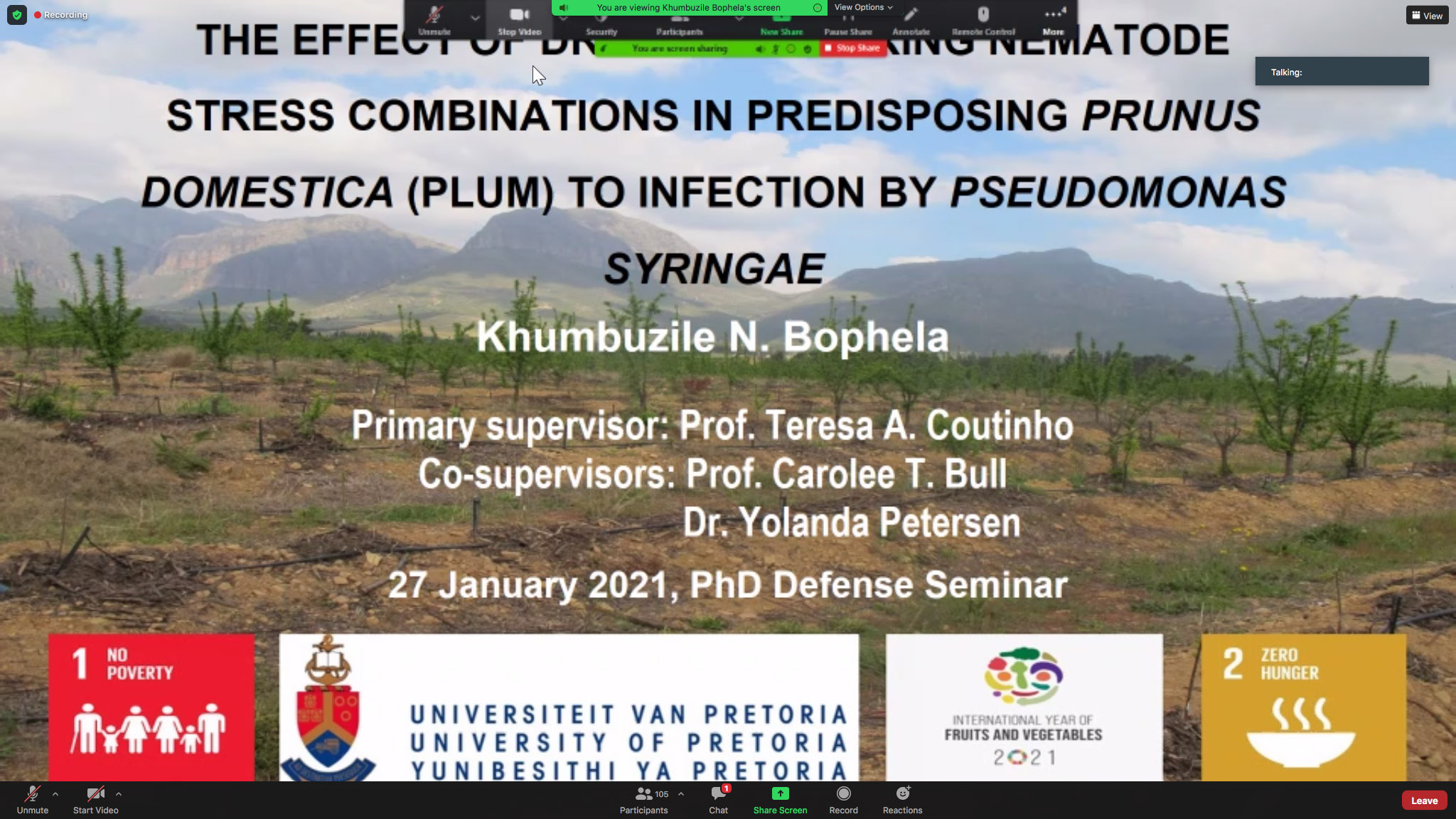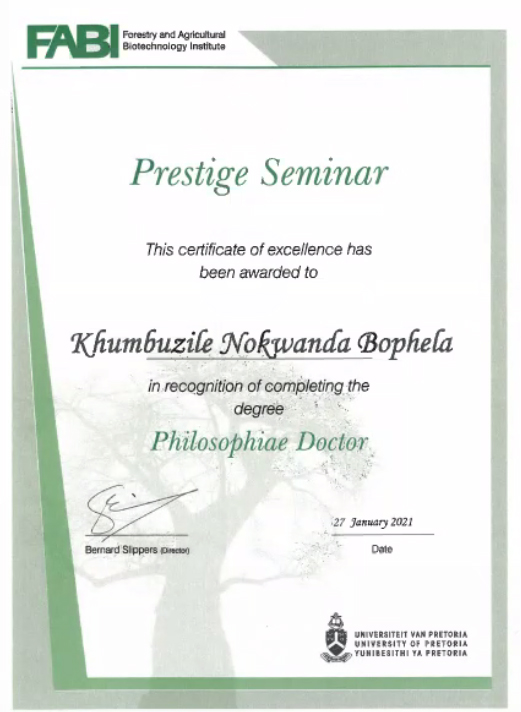Khumbhuzile Bophela presents the first FABI Prestige Seminar in 2021 2021-01-28
FABI congratulates Khumbuzile Bophela on being the first FABIan to successfully complete all degree requirements to pass her PhD in 2021. She presented her Prestige Seminar, entitled “The effect of drought and ring nematode stress combinations in predisposing Prunus domestica (plum) to infection by Pseudomonas syringae” on the Zoom virtual platform on 27 January. Her project was under the supervision of Prof. Teresa Coutinho and co-supervisors Dr Yolanda Petersen from ARC-Infruitec and Prof. Carolee Bull from Penn State University. The external examiners were Dr Joel Pothier (ZHAW Zurich University of Applied Sciences, Switzerland), Prof. Boris Vinatzer (Virginia Tech, USA) and Dr Marco Scortichini (Research Director of Council for Agricultural Research and Agricultural Economy Analysis, Rome (CREA), Italy). Prof. Coutinho described Khumbuzile as a resourceful student who and she was very proud of what she achieved in her PhD.
This PhD project came about after the sudden death of many plum trees of varying cultivars and age in the Western Cape during 2015. Bacterial canker is among the most common bacterial diseases affecting the production of stone fruit trees in South Africa with the causal agents include Pseudomonas syringae pv. syringae and P. syringae pv. morsprunorum. Anecdotal evidence from a report in Franschhoek in 2014 suggested that ring nematodes were linked to a bacterial canker outbreak which resulted in plum tree mortality. Therefore, the overall objective in this study was to determine the effect of drought and ring nematode stresses in predisposing plum trees to bacterial canker infection. To this end, the causal agents of bacterial canker of stone fruit trees in the Western Cape were identified using a multilocus sequence typing approach based on four housekeeping loci. The strains isolated from symptomatic plant material of stone fruit trees were delineated into two phylogenetic groups, namely, P. syringae sensu stricto and P. viridiflava. The delimitation into the two respective genetic clusters was further corroborated by whole genome-based analyses. The findings from the survey at 12 major plum-producing farms revealed a weak to no association between high ring nematode densities and bacterial canker infection. On the other hand, drought was shown to significantly influence both the ring nematode densities and the occurrence of bacterial canker infection.






